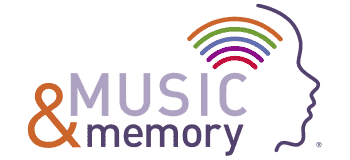
In the most comprehensive study of its kind on the effects of the Music & Memory program, researchers from the Betty Irene Moore School of Nursing at UC Davis found that personalized music is associated with a reduction in the amount of antipsychotic medication taken by nursing home residents and fewer distressed behaviors. The results are published in the Journal for Post-acute and Long-term Care Medicine (JAMDA)
MUSIC & MEMORY® is a non-profit organization that creates personalized music playlists for individuals in nursing homes and other long-term care organizations, who suffer from a wide range of cognitive and physical challenges, to find renewed meaning and connection in their lives through music-triggered memories. The program works to reduce the use of antipsychotic medications in all populations and improve their quality of life. Music & Memory has been adopted by more than 5,000 healthcare organizations in the United States and has been adopted as state policy in 22 states.
A three-year study of 4,107 residents in 265 California nursing homes found the use of antipsychotic drugs declined by 13% and anti-anxiety medications declined by 17% each quarter for residents with dementia using the music program. The odds of depressive symptoms decreased 16% per quarter and the odds of reported pain decreased 17% per quarter. In addition, the number of days on medications declined by 30% and aggressive behaviors reduced by 20%.
“This Study provides further evidence of the positive impact personalized music programs can have for those with Alzheimer’s disease and dementia – not only on improved quality of life but also on the cost and quality of caring,” said Concetta Tomaino, DA, LCAT, MT-BC, Music & Memory Board Member.
Given the size of the study and the overwhelming evidence that personalized music reduces negative outcomes, it’s now more clear than ever that adoption of the Music & Memory program contributes to positive outcomes and quality of care for those living with Alzheimer’s and other forms of dementia and cognitive loss.
Music & Memory will continue to provide updates on the impact of this study and others like it, as well as share how successful this approach has been (all over the US and several countries). Those interested in supporting Music & Memory can donate here: musicandmemory.org/donate
